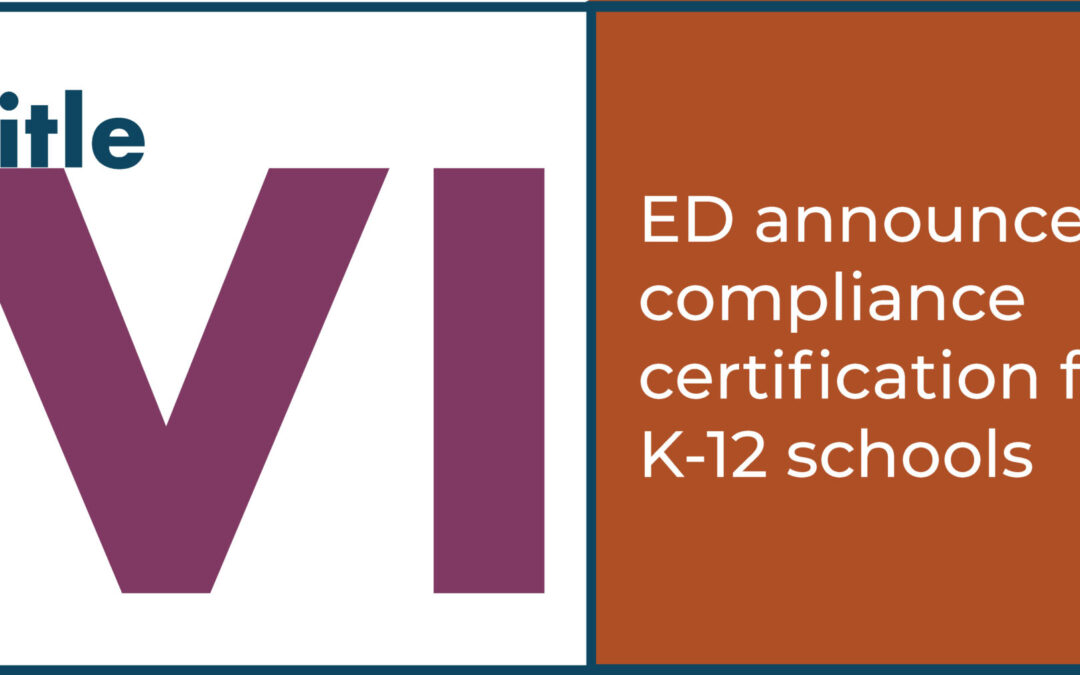On Thursday April 3 the U.S. Department of Education announced that the Department sent letters to state education officials “requiring them to certify their compliance with antidiscrimination obligations in order to continue receiving federal financial assistance.”
The compliance certifications required for K-12 are specifically related to compliance with Title VI of the Civil Rights Act and SFFA v. Harvard, a Supreme Court case about the use of race in college admissions. This administration has taken a broader view of the impact of that Supreme Court decision, as described in the February Dear Colleague Letter and Questions and Answers. The certification document is due in ten 10 days (April 13) and is just over three pages, which includes some long footnotes and two lengthy quotes from case law. In the certification, the Department warns that schools that engage in “illegal DEI” may risk losing funding, may need to return funding received in the past, and could face fines and penalties under the False Claims Act.
Recall that the Attorneys General from fourteen states and the District of Columbia issued joint guidance pushing back on the Trump administration’s broad interpretation and application of the Harvard case. But now officials in those states will need to certify compliance with the Department’s guidance, or risk losing federal funds. Those officials will be guided by state leadership on next steps. For example, on April 4, Daniel Morton-Bentley, the Counsel and Deputy Commissioner of the New York State Education Department, responded to the U.S. Department of Education and said that no further certifications would be filed. Chicago Mayor Brandon Johnson said April 4 that he would sue the Trump administration if it withheld funds, as threatened in the certification request. Professionals can continue to monitor the response, if any, of their state, and follow state guidance on next steps and any changes to implement.
The K-12 Title VI press release is here.
Grand River Solutions will continue to monitor this issue, including any enforcement actions taken by the Department of Education or further guidance from Attorneys General given this new certification requirement.

